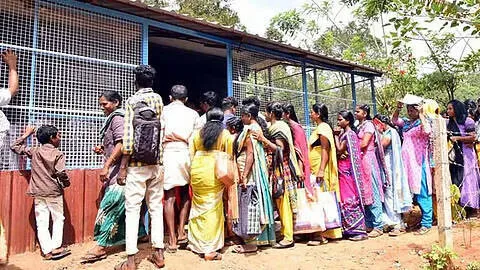

There is a famous quote by a foreign thinker: 'Help can make a person lazy and weak.' The idea behind this is that constant outside help can destroy a person’s ability and confidence to work hard and overcome challenges on their own. This is exactly what has been happening for years in the case of tribal communities in Kerala. No other government scheme in the state has received as much funding as tribal welfare programs. If all the crores spent were directly deposited into each tribal person’s bank account, many of them would have become millionaires by now!
But instead of allowing tribal people to continue their traditional jobs in their natural habitats and empowering them by giving proper marketing and investment support for their products, the focus has often been elsewhere. In this context, a positive report came recently from Thodupuzha via Kerala Kaumudi: as part of the Forest Department’s Vanashree project, eco-shops have helped tribal communities earn Rs 33 crore over the last five years. These eco-shops provide a market for forest products collected by tribal people. Currently, there are 74 such outlets, including two mobile shops, across various districts.
The best part is that the tribal collectors are paid immediately when they hand over the forest products. During festive seasons like Onam, they also receive bonuses from the profit share. Vanashree eco-shops sell a variety of pure and value-added forest products like wild honey, kunthirikkam (a type of resin), pain relievers, and red sandalwood soap. Another benefit is that the tribal collectors are covered by insurance up to Rs 1 lakh. But beyond providing market access, the Forest Department must also guide tribal communities on how to save and use the income wisely during tough times. They should be given practical training on building saving habits.
This can be done not just through banks but also through community-led saving schemes within tribal settlements, under the leadership of local village heads. The Forest Department must also ensure that only tribal communities are allowed to collect and sell forest products through these shops, and outsiders don’t misuse the system. Moreover, the existing restrictions on forest product collection should be reviewed, and more flexible rules must be introduced, without harming the forest ecosystem. For a community that has long been the victim of exploitation, this Forest Department initiative brings dignity, self-respect, and confidence. It is a program that deserves praise and encouragement. What tribal communities need is not just aid, but thoughtful support and genuine care- so they can grow stronger in life and survival.